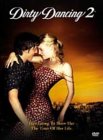![Cold Mountain [2004]](/pictures/1018013.jpg) Cold Mountain | DVD | (05/07/2004)
from £4.81
| Saving you £16.18 (336.38%)
| RRP
Cold Mountain | DVD | (05/07/2004)
from £4.81
| Saving you £16.18 (336.38%)
| RRP In the waning days of the American Civil War, a wounded soldier embarks on a perilous journey back home to Cold Mountain, North Carolina to reunite with his sweetheart.
![Bridget Jones 2: The Edge of Reason [2004]](/pictures/1013927.jpg) Bridget Jones 2: The Edge of Reason | DVD | (25/02/2005)
from £9.98
| Saving you £17.00 (212.77%)
| RRP
Bridget Jones 2: The Edge of Reason | DVD | (25/02/2005)
from £9.98
| Saving you £17.00 (212.77%)
| RRP Although it's been three years since we last saw Bridget (Renée Zellweger), only a few weeks have passed in her world. She is, as you'll remember, no longer a "singleton," having snagged stuffy but gallant Mark Darcy (Colin Firth) at the end of the 2001 film. Now she's fallen deeply in love and out of her neurotic mind with paranoia: Is Mark cheating on her with that slim, bright young thing from the law office? Will the reappearance of dashing cad Daniel Cleaver (Hugh Grant) further spell the end of her self-confidence when they're shoved off to Thailand together for a TV travel story? If such questions also seem pressing to you, this sequel will be fairly painless, but you shouldn't expect anything fresh. Director Beeban Kidron and her screenwriters--all four of them!--are content to sink matters into slapstick, with chunky Zellweger (who's unflatteringly photographed) the literal butt of all jokes. Though the star still has her charms, and some of Bridget's social gaffes are amusing, the film is mired in low comedy--a sequence in a Thai women's prison is more offensive than outrageous--with only Grant's rakish mischief to pull it out of the swamp. --Steve Wiecking
![Me, Myself and Irene [2000]](/pictures/1016068.jpg) Me, Myself and Irene | DVD | (18/06/2001)
from £6.09
| Saving you £13.90 (228.24%)
| RRP
Me, Myself and Irene | DVD | (18/06/2001)
from £6.09
| Saving you £13.90 (228.24%)
| RRP An outrageous comedy from the Farrelly Brothers, the film centers around a mild-mannered Rhode Island cop (Carrey) with split-personality disorder.
![Les Enfants Terribles [1949]](/pictures/1011651.jpg) Les Enfants Terribles | DVD | (30/08/2004)
from £14.31
| Saving you £5.68 (39.69%)
| RRP
Les Enfants Terribles | DVD | (30/08/2004)
from £14.31
| Saving you £5.68 (39.69%)
| RRP Jean-Pierre Melville's second film, made in 1950, became a significant influence among French film-makers and earned Melville renown as a maverick who could do wonderful things outside his country's studio system. (Melville's independence was a forerunner of that enjoyed later in the decade by New Wave figures such as François Truffaut and Jean-Luc Godard.) Les Enfants Terribles is based on a 1929 novel by poet and film-maker Jean Cocteau, who also wrote the script with Melville and according to some people interfered in everything from the casting (the rather stiff male lead was a Cocteau protégé) to the photography. Nevertheless, the story of a sister (an outstanding performance by Nicole Stephane) and brother (Edouard Dhermite) who withdraw into their own, insulated world to play out suggestively erotic dramas, has a fluid, lyrical movement that is part of a visionary whole. In some ways a harbinger of the coming pop narcissism of youth culture, Les Enfants Terribles is also a timeless tale of mythic exploration of existence and purpose. --Tom Keogh, Amazon.com
 Audition Blu-Ray | Blu Ray | (29/02/2016)
from £18.64
| Saving you £1.11 (6.58%)
| RRP
Audition Blu-Ray | Blu Ray | (29/02/2016)
from £18.64
| Saving you £1.11 (6.58%)
| RRP Much of the controversy surrounding Takashi Miike's Audition centres on the disturbing nature of the later part of the film--understandable when you consider the imprint these admittedly horrific images leave on the viewer--but fails to note the intricate social satire of the rest. This is a film that offers insight into the changing culture of Japan and the generation gap between young and old. Shigeharu Aoyama is looking for an obedient and virtuous woman to love and asks, "Where are all the good girls?"--a comment that seals his fate. A fake audition is organised to find Aoyama a wife. Asami Yamazaki is introduced as the virtuous woman he is looking for, dressing for the majority of the film in white and behaving with the courtesy of an angel, especially when juxtaposed against the brash stupidity of the other girls at the audition. Although his friend takes an immediate "chemical" dislike to her, Aoyama begins a love affair to end all love affairs. But as Asami's history unfolds we see her pain and torture and slowly understand that the tortured in this instance holds the power to become the torturer. Aoyama is slowly drawn away from his white, metallic and homely environment into the vivid- red and dirty-dark environment of Asami's sadistic world. Audition can be viewed on a number of levels, with important feminist, social and human rights issues to be drawn from the story. However, the real power of this film is its descent into the subconscious, to a point where reality is blurred and the audience is unable to decide whether the disturbing images on screen are real or surreal. This refined, hard-hitting and essentially Japanese style of horror is ultimately much more powerful than anything offered by Hollywood. This is a film that will get under your skin and infect your consciousness with a blend of fearless gore and unimaginable torture. It is not for the faint-hearted. --Nikki Disney
![Audition [1999]](/pictures/1005437.jpg) Audition | DVD | (28/06/2004)
from £13.85
| Saving you £1.14 (8.23%)
| RRP
Audition | DVD | (28/06/2004)
from £13.85
| Saving you £1.14 (8.23%)
| RRP 'Audition' is an eerie tale of a man (Ryo Ishibashi) who in his search for a new wife at the insistence of his son holds an audition for potential mates. He disguises his actual intentions by saying that the audition is for an actress to star in a new movie that he is making. When at last he finds the perfect woman (the model Eihi Shiina) she disappears leaving a bizarre trail of gruesome murders in her path... This collector's edition of 'Audition' features specially prepared
![The House with a Clock in its Walls [DVD] [2018]](/pictures/1148486.jpg) The House with a Clock in its Walls | DVD | (28/01/2019)
from £7.05
| Saving you £N/A (N/A%)
| RRP
The House with a Clock in its Walls | DVD | (28/01/2019)
from £7.05
| Saving you £N/A (N/A%)
| RRP Jack Black, two-time Academy Award winner Cate Blanchett and Kyle MacLachlan star in The House with a Clock in its Walls. Based on the beloved children's classic written by John Bellairs, this magical adventure tells the story of 10-year-old Lewis, who goes to live with his uncle in a creepy old house. But this town's sleepy façade jolts to life when Lewis discovers that the house has a mysterious tick-tocking sound coming from its walls. Determined to find the ticking, Lewis uncovers a secret world of warlocks and witches and accidentally awakens the dead - forcing Lewis, his Uncle Jonathan and their neighbour, Mrs Zimmerman into a race against time to save the world.
![Heidi - Series 1 [1978]](/pictures/1017766.jpg) Heidi - Series 1 | DVD | (13/09/2004)
from £17.99
| Saving you £-3.00 (N/A%)
| RRP
Heidi - Series 1 | DVD | (13/09/2004)
from £17.99
| Saving you £-3.00 (N/A%)
| RRP Heidi is a treasured story for all children one of many tales written by the Swiss authoress Johanna Spyri. This is a charming tale of a young orphan called Heidi who is taken to live with her Grandfather up in the mountains. A classic tale of childhood joys and friendships it has delighted and inspired generations of children. Episodes comprise: 1. The Village 2. Ohi Of The Alps 3. Peter The Goat Herder 4. The Grandmother 5. Winter 6. The Departure 7. Arrival In Frankfurt 8. The
![Jumpin' Jack Flash [1987]](/pictures/1014663.jpg) Jumpin' Jack Flash | DVD | (05/04/2004)
from £8.25
| Saving you £4.74 (57.45%)
| RRP
Jumpin' Jack Flash | DVD | (05/04/2004)
from £8.25
| Saving you £4.74 (57.45%)
| RRP Computer operator Terry Dolittle (Goldberg) becomes involved in international espionage when a desperate message from a British Intelligence officer appears on her computer terminal...
![Hana-Bi [1998]](/pictures/1004135.jpg) Hana-Bi | DVD | (19/02/2001)
from £19.00
| Saving you £0.99 (5.21%)
| RRP
Hana-Bi | DVD | (19/02/2001)
from £19.00
| Saving you £0.99 (5.21%)
| RRP The ideal starter movie for those who wish to familiarise themselves with the work of the paradoxical Japanese auteur, Hana-Bi (the word means "fireworks" in Japanese) is an echt example of "Beat"'s Takeshi Kitano's distinctive brand of existential crime thrillers. Like Violent Cop, Boiling Point, Sonatine or his LA-set Brother, Hana-Bi juxtaposes shocking bursts of violence with reflective moments of lyricism, setting up a slap-caress-slap rhythm that's as disquieting as it is addictive. Kitano himself plays weary Tokyo cop Nishi, an impassive-faced detective in hock to yakuza mobsters, toughened by a career in violence (at one point he takes out an attacker's eye with a chopstick, an assault so swiftly edited one barely has time to register it). Nishi's Achilles-heel is his love for his wife Miyuki (Kayoko Kishimoto) who is dying of cancer, following their late daughter to the grave. When Nishi leaves a stakeout to attend to her in hospital, a colleague, Horibe (Ren Osugi) is paralysed in the ensuing shootout. Nishi, guilt-stricken, goes on the run with Miyuki, taking her to beauty spots to enjoy simple pleasures like kite-flying and picnics before she dies, although the yakuza are never far behind. Meanwhile, Horibe takes up painting, and discovers in the process a calming new vocation (the na&239;ve, disturbing and strangely beautiful images are by Kitano himself, painted after he had his own near-fatal experience in a motorcycle accident). The cumulative effect is a profoundly moving and enigmatic movie, one that discreetly withholds many of the narrative crutches--backstory, motivation--you would expect from a conventional Hollywood movie with the same story. It's not surprising Kitano is so drawn to characters teeming with contradictions, given that his own career seems so bi-polar on paper: he started out a television presenting clown, and his move into glowering policiers represented an image volte-face as surprising to Japanese audiences as it would be if Dale Winton had started making Scorsese-style gangster movies. His comic sensibility shines through in spots in Hana-Bi, even more so in the broad comedy Kikujiro. Considered by many critics Kitano's best film, Hana-Bi^'s power is augmented by Hideo Yamamoto's lapidary cinematography, and Jo Hisaishi's lush, string-laden score. --Leslie Felperin
![El Topo [Blu-ray]](/pictures/1155601.jpg) El Topo | Blu Ray | (02/08/2021)
from £10.59
| Saving you £N/A (N/A%)
| RRP
El Topo | Blu Ray | (02/08/2021)
from £10.59
| Saving you £N/A (N/A%)
| RRP A mind-blowing 'acid-western' which shocked and bedazzled audiences upon its controversial original release, El Topo single-handedly invented the American midnight movie phenomenon... Jodorowsky's most violent and notorious film sees the director play 'The Mole' of the title: a black-clad. master gunfighter. In the first half, El Topo journeys across the desert dreamscape with his young son (Brontis Jodorowsky) to duel with four sharp-shooting Zen masters, who each bestow a Great Lesson before they die. In the second half, El Topo becomes the guru of a subterranean tribe of deformed outcasts who he must liberate from depraved cultists in a neighbouring town. A countercultural masterpiece that ingeniously combines iconic Americana symbolism with Jodorowsky's own idiosyncratic surrealist aesthetic, El Topo is an incredible journey through nightmarish violence, mind-bending mysticism and awe-inspiring imagery. This era-defining film is now presented in a stunning new 4K restoration with a wealth of newly produced and archival extras. Special Features: New 4K restoration from the original 35mm camera negative approved by Alejandro Jodorowsky High Definition Blu-ray (1080p) presentation in 1.85:1 and 1.37:1 original aspect ratios Uncompressed mono 1.0 LPCM audio and 5.1 DTS-HD Master Audio Original Spanish and English soundtracks Newly translated English, Spanish and French subtitles Audio commentary by Alejandro Jodorowsky Jodorowsky remembers El Topo, newly filmed interview filmed in Paris A Conversation with The Son of El Topo, a newly filmed, extensive interview with Brontis Jodorowsky who stars in El Topo The Father of Midnight Movies, an archival interview with Jodorowsky filmed in 2007 Original trailer Image galleries
![Eyes of Laura Mars (Standard Edition) [Blu-ray] [2019] [Region Free]](/pictures/1149825.jpg) Eyes of Laura Mars (Standard Edition) | Blu Ray | (16/09/2019)
from £13.79
| Saving you £N/A (N/A%)
| RRP
Eyes of Laura Mars (Standard Edition) | Blu Ray | (16/09/2019)
from £13.79
| Saving you £N/A (N/A%)
| RRP Irvin Kershner's stylish, violent cult thriller from an original screenplay by John Carpenter stars iconic star Faye Dunaway as glamorous fashion photographer Laura Mars, who begins to experience horrific visions when she sees' a series of brutal murders as they happen. Extras: High Definition remaster Original mono audio Audio commentary with director Irvin Kershner The Eyes Have It (2017, 14 mins): an appreciation by critic Kat Ellinger Visions (1978, 7 mins): original 'making of' documentary Eyes on Laura Mars (1999, 8 mins): on-set photography with commentary Original theatrical trailer David DeCoteau trailer commentary (2013, 4 mins): a short critical appreciation Image gallery: on-set and promotional photography New and improved English subtitles for the deaf and hard-of-hearing
 Don Giovanni - Mozart | DVD | (14/03/2005)
from £N/A
| Saving you £N/A (N/A%)
| RRP
Don Giovanni - Mozart | DVD | (14/03/2005)
from £N/A
| Saving you £N/A (N/A%)
| RRP The Opera Don Giovanni drama in two acts.
![Essential Becker Collection [Blu-ray]](/pictures/1160990.jpg) Essential Becker Collection | Blu Ray | (28/11/2022)
from £46.99
| Saving you £N/A (N/A%)
| RRP
Essential Becker Collection | Blu Ray | (28/11/2022)
from £46.99
| Saving you £N/A (N/A%)
| RRP Jacques Becker was an important and influential French filmmaker who was admired by the directors that led the French New Wave movement. He made his directorial debut in 1942 after a year in a German prisoner-of war camp. The entire output of his working career was only 13 films including some of the greatest French masterpieces. Becker had a very strong presence in French cinema and constantly tried to create something different which is noticeable in his films as each is unique and very different in style and genre. This essential collection includes 5 films of the prestigious filmmaker: Falbalas (1944), Edward and Caroline (1951), Casque d'Or (1952), Touchez pas au Grisbi (1954) and Le Trou (1960). Product Features FALBALAS (1944) Falbalas: A Family Affair Fashion and Clothing: Jean Paul Gaultier Interview with Micheline Presle Auditions Falbalas: Restored Version EDWARD AND CAROLINE (1951) Interview with Ginette Vincendeau Edouard et Caroline on AU CINEMA CE SOIR © Ina - 1974 Jacques Becker on LE JAZZ ET JEUNESSE © Ina - 1956 CASQUE D'OR (1952) Alex and Marie: Once upon a time there was Casque d'Or In the heart of hearts: the legend of Casque d'Or Trailer TOUCHEZ PAS AU GRISBI (1954) Interview With Ginette Vincendeau Interview With Jean Becker Interview With Jeanne Moreau Jeanne Moreau On Gros Plan © Ina - 1957 LE TROU (1960) Interview with Ginette Vincendeau Interview with Jean Becker Interview with Philippe Leroy L'Envers du décors : A Behind The Scenes Featurette Interview With Jean Keraudy
![DC's Legends of Tomorrow - Season 2 [Blu-ray] [2017]](/pictures/1144007.jpg) DC's Legends of Tomorrow - Season 2 | Blu Ray | (14/08/2017)
from £3.06
| Saving you £N/A (N/A%)
| RRP
DC's Legends of Tomorrow - Season 2 | Blu Ray | (14/08/2017)
from £3.06
| Saving you £N/A (N/A%)
| RRP After the defeat of the immortal villain Vandal Savage and the corrupt Time Masters who colluded with him, a new threat emerges. Dr. Nate Heywood (new series regular NICK ZANO), an unconventional and charming historian, is thrust into the action upon making a shocking discovery - the Legends of Tomorrow are scattered throughout time. Nate must find a way to rescue the Waverider's beloved team of heroes and rogues, including Star City inventor Ray Palmer (series star BRANDON ROUTH), who has created an exo-suit with the power to shrink him to miniscule size, as the Atom; Sara Lance (series star CAITY LOTZ), a trained assassin known as the White Canary; Professor Martin Stein (series strar VICTOR GARBER) and Jefferson Jax Jackson (series star FRANZ DRAMEH), who together form the metahuman Firestorm; and career criminal Mick Rory (series star DOMINIC PURCELL), aka Heat Wave. When the Legends encounter the Justice Society of America (precursor to DC's Justice League) in the 1940s, Amaya Jiwe (new series regular MAISIE RICHARDSON-SELLERS), aka Vixen, joins the team. While the team reunites, a mystery looms - the fate of former captain Rip Hunter (series star ARTHUR DARVILL). Once reunited, the Legends continue their new mission to protect the timeline from temporal aberrations - unusual changes to history that spawn potentially catastrophic consequences. When Heywood, the grandson of J.S.A. member Commander Steel, unexpectedly finds himself with powers, he must overcome his own insecurities and find the hero within himself. Ultimately, the Legends will clash with foes both past and present, to save the world from a mysterious new threat.
 Dirty Dancing 2 | DVD | (22/11/2004)
from £3.89
| Saving you £11.10 (74.00%)
| RRP
Dirty Dancing 2 | DVD | (22/11/2004)
from £3.89
| Saving you £11.10 (74.00%)
| RRP The sinuous world of 1950s Cuban dance halls provides the setting for Dirty Dancing: Havana Nights, a "re-imagining" that shares with the original movie a deep love of sexy young people pressed tightly together on the dance floor. Fresh from New England, bookish and lovely Katey (Romola Garai, adorable in the charming but little-seen I Capture the Castle) meets a fiery young busboy named Javier (Diego Luna, Y Tu Mama Tambien) at a snooty hotel. Before you can say Tito Puente, the two have found a common language in the sensual swaying of their limbs, despite the resistance of Katey's mother (Sela Ward). It's all ridiculous, of course--the dialogue is atrocious, the characters tortilla-thin, and the politics embarrassing--but that's hardly the point. Luna is dreamy, there's lots of sweaty dancing, and Patrick Swayze makes an appearance--what more can you ask from a movie called Dirty Dancing? --Bret Fetzer
 All About You | DVD | (07/02/2005)
from £4.96
| Saving you £5.03 (101.41%)
| RRP
All About You | DVD | (07/02/2005)
from £4.96
| Saving you £5.03 (101.41%)
| RRP You have to leave room for the surprises... Nicole (Renee Goldsberry) is very much in love with her boyfriend Robbie who has an excess of intelligence and ambition. But one night at a party she is heartbroken to learn that she doesn't figure in his future plans. She moves from Los Angeles to San Francisco to start anew. Months later a strange coincidence sees Brian (Terron Brooks) Robbie's estranged younger brother subletting Nicole's roommate's room for a month. Before long N
![The Killing Trilogy [DVD]](/pictures/1147940.jpg) The Killing Trilogy | DVD | (02/07/2018)
from £25.29
| Saving you £N/A (N/A%)
| RRP
The Killing Trilogy | DVD | (02/07/2018)
from £25.29
| Saving you £N/A (N/A%)
| RRP The complete three seasons of the Emmy-nominated Danish crime drama created by Søren Sveistrup. In the first series, Detective Inspector Sarah Lund (Sofie Gråbol) is all set to emigrate to Sweden but her plans are put on hold when the police investigation into the murder of a young girl in Copenhagen turns out to have implications in high places. Each episode chronicles a single day in the investigation, which gradually brings a tangled web of corrupt politics and power struggles to light as the hunt for the killer intensifies. In the second series, set two years later, Lund, who has since been demoted from DI, is called into the homicide department to help her former colleagues on a tricky murder case. Initially reluctant, Lund soon gets involved and discovers that the victim was killed because she knew about the deaths of Afghan citizens at the hands of Danish soldiers. In the third and last series, having found peace after her previous ordeals, Lund has her curiosity ignited when she notices a tattoo on the victim of what seems to be a random murder at the Copenhagen docks. Attention is quickly drawn toward the Zeeland oil business run by the troubled Robert Zeuthen (Anders W. Berthelsen) whose daughter has been kidnapped, and an old flame of Lund's believes that both the kidnapping and murder may be connected to a possible assassination attempt on the prime minister.
![Hana-bi (Fireworks) [Blu-ray]](/pictures/1137980.jpg) Hana-bi (Fireworks) | Blu Ray | (11/01/2016)
from £17.05
| Saving you £2.94 (17.24%)
| RRP
Hana-bi (Fireworks) | Blu Ray | (11/01/2016)
from £17.05
| Saving you £2.94 (17.24%)
| RRP Nishi leaves the police in the face of harrowing personal and professional difficulties. Spiraling into depression, he makes questionable decisions.
 One True Thing | DVD | (04/07/2005)
from £8.07
| Saving you £-2.08 (N/A%)
| RRP
One True Thing | DVD | (04/07/2005)
from £8.07
| Saving you £-2.08 (N/A%)
| RRP Based on Anna Quindlen's bestselling novel, this is a mother-daughter and father-daughter story, two for the price of one. But director Carl Franklin also tries to inject a police-mystery angle that it neither needs nor will support. Renee Zellweger plays a young writer on the rise, who has finally got her break for a New York magazine. While home for a birthday party for her nearly famous writer father (William Hurt), she learns that her mother (Meryl Streep) has been diagnosed with cancer. Then her father does the unthinkable: he all but commands her to put her career on hold to take care of her mother and nurse her through her illness. Dad, a popular college professor who has never received the literary acclaim he always believed he deserved, essentially checks out--and daughter must play parent to her mother. Strong performances by Streep and Zellweger give this parent-child relationship the heart--and the anger--of the real thing, while Hurt seems slightly disembodied as the self-involved father whose needs have dominated both women. Still, the detective-story aspect (the film is told in flashback, as the cops try to discover whether someone slipped Mom a fatal dose of morphine) is a construct that could have been done without. --Marshall Fine

Please wait. Loading...
This site uses cookies.
More details in our privacy policy